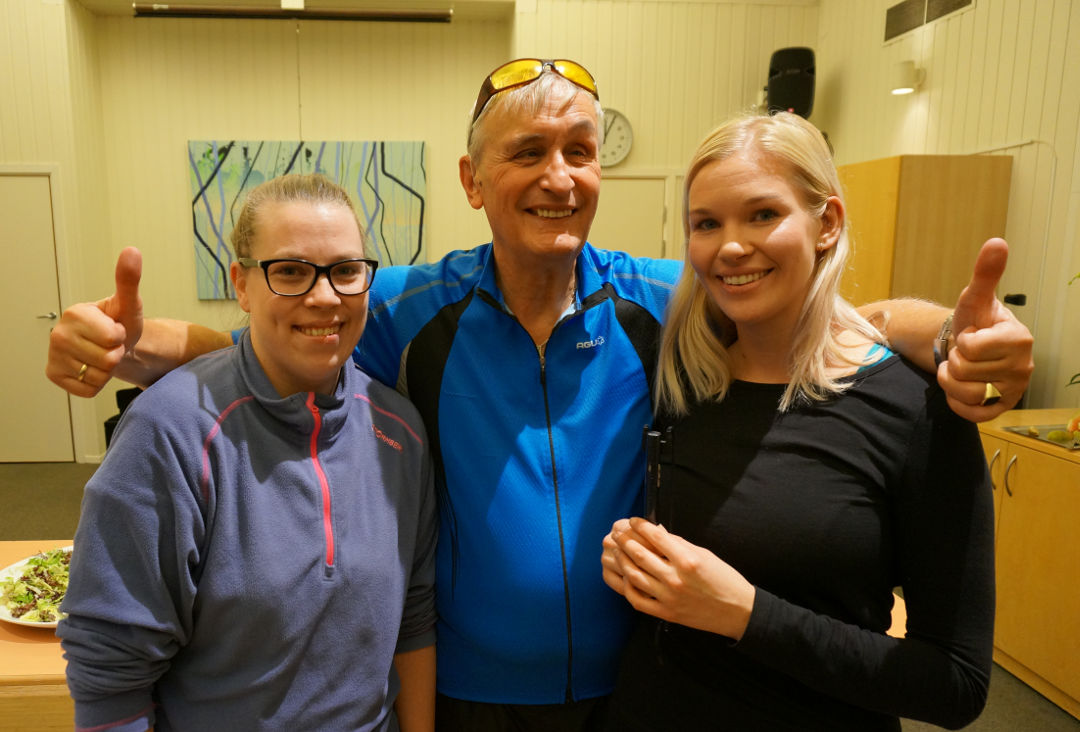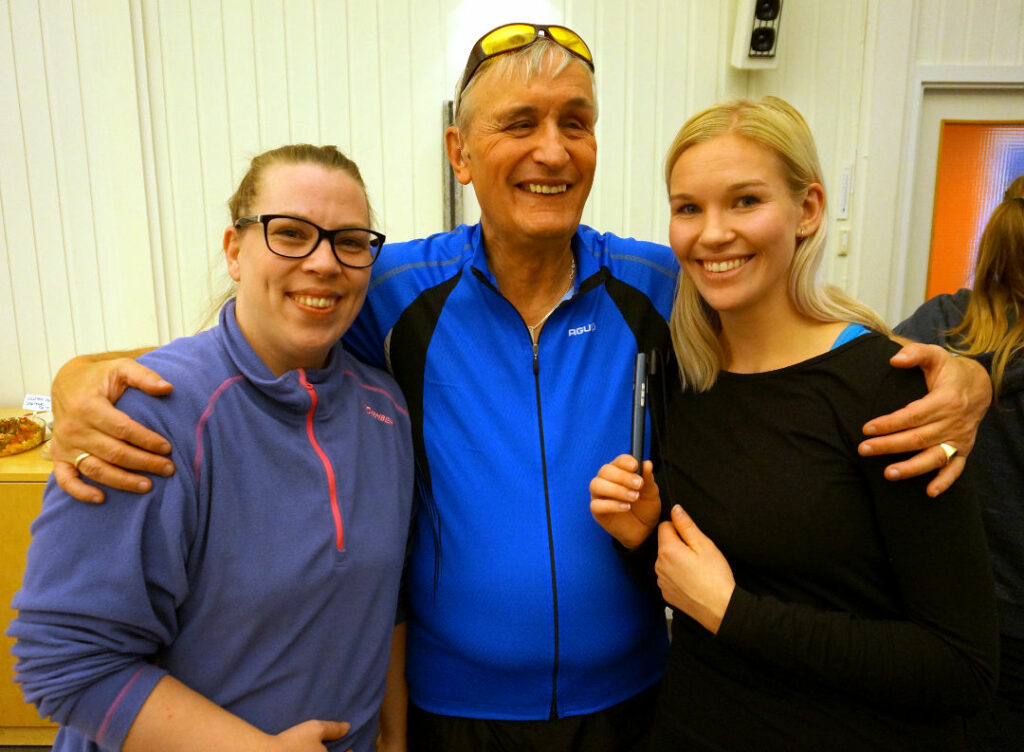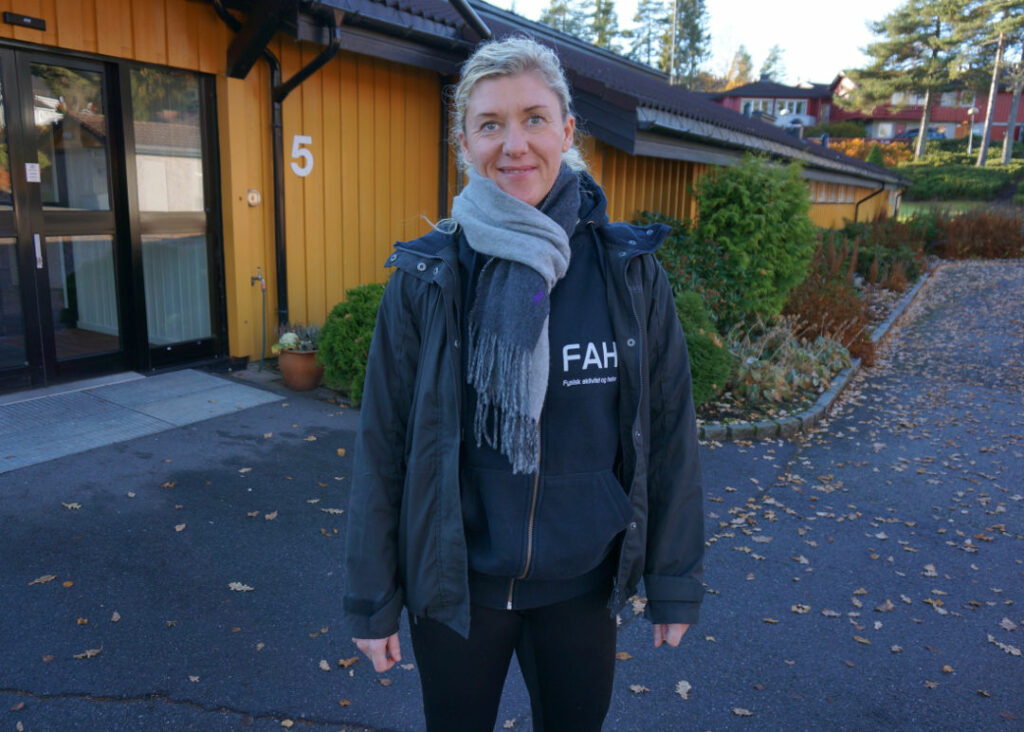Health sports course November 2015

Students on the three sign language and interpreting programmes receive training in various methods of interpreting for people with combined visual and hearing impairment and deafblindness. Students at the Norwegian School of Sport Sciences receive practical training in organising training for people with combined visual and hearing impairment/deafblindness. People with combined visual and hearing impairment/deafblindness receive a personal trainer for a week and a good basis for continuing their training when they return home. They also help to train new interpreters and provide them with good interpreting training.

We meet Jannicke Hauge and Ninni Steen, third-year students in the Sign Language and Interpreting programme at HiST and HiOA respectively, who are interpreting for Cor van der Lijcke this week, to hear their experiences of the Health Sports course at Eikholt.
Jannicke has the following comments about having an internship at Eikholt.
"The internship at Eikholt is great. The course week provides opportunities for good and intensive interpreting training. It's great that the deafblind people show up and are good teachers for us. I was very excited beforehand, a lot of nerves, but meeting Cor and the others makes me feel confident."
Hilde Rustad is one of the students from the Norwegian School of Sport Sciences' Department of Physical Activity and Health, who is responsible for organising exercise for the participants in Health Sport Week. We ask her about what it's like to be in charge of the training programme for Helsesportuka at Eikholt.
"There are many challenges that require great patience. The participants are so different and the forms of communication are so different. That's why everything takes so long. However, all participants master the challenges and enjoy the activities.", says Hilde.

"Eikholt is a great place that makes it easy for deafblind people to be active. It's so well organised here with hiking areas and opportunities to challenge yourself. We see a big difference in skills when courses start on Monday until they go home on Friday. From Helsesportuka, participants learn simple exercises that they can continue with when they get home. It's very educational for us students to work with the participants here at Eikholt."
Cor has been involved in teaching interpreting students for a number of years and really enjoys taking part.
"It's important to have good quality interpreters. That's why it's important for us users to act as 'teachers' for the student interpreters. The first time we meet, the students are very nervous, but they quickly become more confident. It's important that we deafblind people act as sparring partners for the students, offering praise and criticism. That's why I encourage other deafblind people to act as teachers for the students during the health sports courses at Eikholt."
"Interpreting for deafblind people is much more than just interpreting. Accompaniment is also an important element in interpreting for deafblind people. They are also trained in haptic communication, which enables deafblind people to 'see' what they cannot see. Haptic communication is therefore the 'icing on the cake'." says Cor, who also emphasises that interpreting for deafblind people involves intimacy that can be demanding for both user and interpreter.
Cor says that both Jannicke and Ninni have "passed the exam" as interpreters for him these days.
Helsesportukene, which is held every autumn at Eikholt, has become an arena where students from four university colleges in Norway get to spend a whole week with people with combined visual and hearing impairments. Through their internships, they get a unique opportunity to practice as interpreters and as training instructors for challenging users. In this way, Eikholt helps to spread expertise to future interpreters and healthcare workers with training expertise.
The offer is a good example of good resource utilisation.
